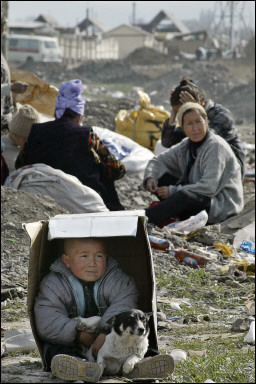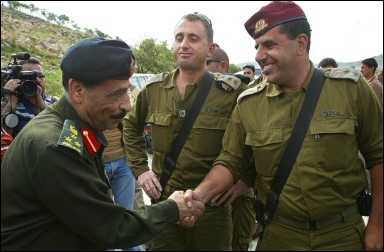Diamond Line
What I want to do is draw a line, like the lines of latitude and longitude that were so much help to the sailors and geographers when those lines were first drawn, and still are; and like the lines between acceptable acts and unacceptable acts, where those acts are superficially the same, as theft and murder are distinguished from eminent domain and death in wartime.
And like a pencil line, like a real pencil line drawn with a real pencil, the line I'm drawing is larger at one end and smaller at the other, though like a real line drawn with a real pencil it will take a degree of magnification to see that difference; because if your pencil is sharp it leaves its graphite behind as it goes, and it gets duller and the line it leaves gets wider.
My line begins in Alaska, though I could have begun it in Africa, I had that choice. I decided to begin it in Alaska and draw it through to Africa, it was my choice and I made it that way.
I want to connect two holes in the world by making another one, an imaginary one, between them; like the lines of latitude and longitude, imaginary but helpful lines.
The two holes I want to connect are in Alaska and Africa, as I said - one of them made by a bullet, the other by grief and a broken heart.
The first one is the result of a gun being fired from a helicopter by a man who has paid a relatively large amount of money to the service that provides the helicopter and a pilot, and a "guide", possibly even a comfortable room for the shooter to sleep in the night before and the night after he does his shooting. He's bought an opportunity to shoot a wolf, guaranteed kill, same-day kill, and a trophy, in the sense that the wolf he kills can be skinned if he wants and the skin taxidermied into a semblance of its living ferocity, and the shooter can then display it in an appropriate place in his home, as proof of his abilities, his power in this world to do what he likes. And, in a very modern way, his courage; modern because on the face of it there isn't much courage needed to shoot a wolf from a helicopter after it's been run to exhaustion by the machine itself, unless you count the courage it takes to fly as a passenger in a relatively small helicopter through the Alaskan wilderness. The courage may be spiritual, it may be that the God of this man is what has the courage he doesn't; though my experience of men who would do that is that they worship themselves first, so that any God they worship would be a kind of cumulation, a composite of themselves.
The actual confrontation, between man and animal, is prosthetized, the wolf sees only a machine, hears only a machine, though there may be a telepathic recognition - and there may be much more to our existences, ours as humans, and the wolves' as what they are, that creates that recognition. We may all be connected in ways that allow that recognition to take place, even though there's no immediately verifiable, provable way for it to happen. But even if it does exist, that soul-familiarity between creatures, that's not a way of living we have in common anymore, not with each other, and definitely not with animals as threateningly competitive as wolves once were to us.
The man sees the wolf, he begins a relationship with the wolf, one of total dominance, that has nothing to do with his personal courage and strength; another man, in a wheelchair, with atrophied muscles, could shoot a run-to-exhaustion wolf from a hired helicopter as easily as this over-fed businessman can, whose strength comes from his determined self-regard and his fear of humiliation.
The man sees the wolf, the wolf sees the machine, the machine with the man inside it chases the wolf, the man shoots his gun and the wolf dies - eventually or immediately depending on the shot's accuracy. What I'm proposing is that the bullet, after passing through the wolf's body, continues through the air on the other side, through the snow and into the dirt, which we know is there, because it's everywhere - with only a few rare exceptions, dirt is everywhere beneath us. It's why, in english at least, the same word is used to describe the dirt below us and the planet itself - earth.
The bullet passes through the wolf and through the air and through the snow and into the earth and there it is; and there's the hole its passing has made. I want to draw a line that begins there, at the hole begun as the bullet entered the earth, and that passes through the bullet as it goes, on its way to the other point, at the end of the line I'm drawing; this is how we draw lines - by starting at a point of beginning and stopping at a point of ending.
The line will now travel through darkness until it stops, at a pebble in the dirt of Botswana, a pebble in the dirt at the bottom of a hole in the ground in Botswana - not in a mine as some of you thought, though I give you credit for that, for knowing there are mines in Botswana, that diamonds are taken out of the ground there, and after they're taken out of the ground they begin to generate money for everyone who touches them - the least money for the men who actually take them out of the ground, the most for the men and women who touch them after, and I mean that metaphorically, in the sense that most of the men and women who touch them, before they're delivered to the cutters, only touch them legally, as possessors, they "own" the diamonds, but they don't very often actually pick them up in their hands and hold them.
After the diamonds are cut they continue to advance through the international diamond market, and continue to make money for the men and women who touch them, until, in the case of more than a few of them, most of them I think, they're bought as jewelry by people, many of them young people who've grown up believing that the purchase of a diamond is a necessary part of a formal declaration of love, that a young man who wishes to marry has to buy a diamond; and the size of it, the value of it - not so much what it cost him, but what it can be resold for - is a measure of his prospects, his value as a husband and provider, and a measure of his desire and commitment to the woman he buys the diamond for, usually as a stone set into a ring.
But it isn't to a diamond mine that my line is drawn, even though without them there, in Botswana, without the presence of diamonds in the ground, and men and machines employed to dig them up, and a small host of men and women waiting to begin the process of making money from those diamonds as they touch them going by, there wouldn't be the hole in the ground my line is being drawn to, to connect with, as an end point from where I began it - in Alaska, in the wilderness, in the ground, with the bits of blood and bone and flesh of the wolf the bullet that made the hole in the earth passed through until it was stopped, by a resistant force created by friction from its passing through the dirt it entered after passing through the wolf that was greater than the momentum and inertia that were created by its firing.
Though it's true that without the diamonds, and without the willingness of so many men and women to do anything necessary to get money and financial power, and the protection that wealth brings to those who know how to use it - without the wealth the diamonds generate there wouldn't be all these bushmen gathered here, around this hole in the ground.
It's a Christian burial for a primitive man, an old man in this context, though he's only in his 60's. He lived the last couple of years he lived in a settlement provided by the government of Botswana - provided in the sense that it was built for the tribe he lived with, to whom he was related in bonds that are as tight as any any of us know, but also deeper, and more widely skeined, because there are more of those bonds of relationship,and they go out into the world in more ways than most of our bonds do; the primitive bushman, while owning much less, has more distinct relationships with more things than we do, who don't live in that connected way anymore.
The government built the settlement and came and told the tribe the man lived in that they would have to move there and that they could no longer hunt where they'd been hunting. The government's moving them because otherwise they would be in the way of tourists who want to see "big-game" animals and will pay a lot for the chance, and these people, the bushmen, hunt animals as endearing and photogenic as giraffe, not as often as they hunt smaller less photogenic animals, but they do hunt them and kill them and eat them, and are happy about it when they do, feel successful when they do; and also, not tangentially, they would be in the way of the exploration that's necessary in order to find the diamonds, and other minerals, that are still in the ground in Botswana.
The man misses first, most consciously, the hunting he can't do anymore, but it's more accurate to say there are things he misses more deeply that we can't tell each other, because we don't have names for them. Being somewhere you've been all your life, at dawn, and watching the color come back into the world, he misses that.
And it being the way of those kinds of places, the new towns and settlements primitive people are forced into by progress and modern social change, there's alcohol there in its various forms, which is why some of the men standing around the hole in the ground there in Botswana smell like they do, and why their eyes are red, and why their grief is stumbling and compromised and not intense enough to create a fire in their hearts the way real grief does, in people who love the unjustly dead.
And the injustice of this man's death is hard to find from close-up, it's hard to see exactly; he wasn't beaten to death, he wasn't run over by an earth-mover at the mines, he wasn't shot by a soldier for returning to hunt at the places he'd been warned not to return to, he just stopped living, slowly, moving less and less, saying less and less, eating less and less, and then he was dead.
So this hole's been dug in the ground to bury him, and a service is being held at the edge of it, prayers are being read over his coffin - a Christian burial is taking place, there in Botswana.
A pebble falls from the lip of the grave, and where it lands it makes a little dent in the soft ground at the bottom of the hole, a point. And now there's a line that ends, and begins, at that point in Botswana, and goes straight through the earth to Alaska.






 to project Chinese power overseas and protect China's energy security at home.
to project Chinese power overseas and protect China's energy security at home.